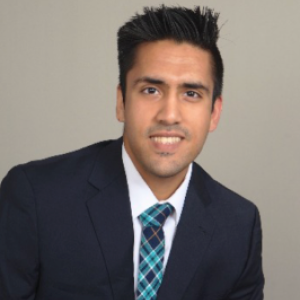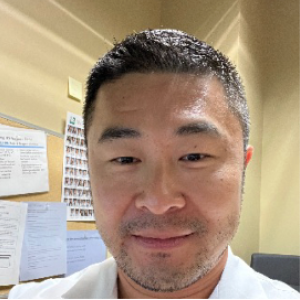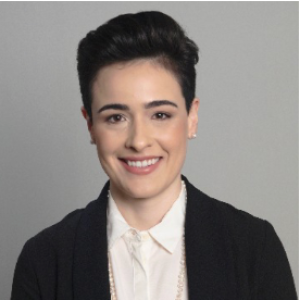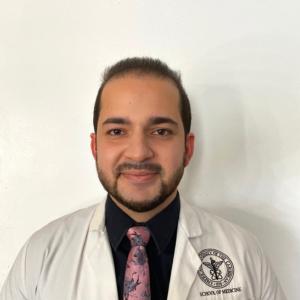
The Duke Department of Neurology's Neurocritical Care Fellowship program trains neurointensivists with an emphasis on broad based training in critical care and creating future leaders of neurocritical care.
Our Neurocritical Care Fellowship program trains academic-minded neurointensivists with an emphasis on superb clinical training and future career planning. It is accredited by UCNS and have applied for ACGME accreditation. Our program accepts 3 fellows per year.
The Duke Department of Neurology recognizes that a community where people of all backgrounds are respected and included – including its clinicians, researchers, trainees, leadership, and staff – is a necessary part of its mission of world-class patient care, education, and research. Read more about our efforts across the Department.
“I will always be thankful to Duke and, in particular, the Neurocritical Care faculty and staff for providing me with such an amazing fellowship experience. The kindness and patience I received was unparalleled. They went above and beyond to help me meet both my educational and research goals, with phenomenal mentorship. In light of the training that I received, I graduated the program feeling confident in my skills as a neurointensivist and was prepared to be an attending physician. Duke will always have my gratitude.” - Rana Moosavi, MD, NCC Fellow 2018-2020
The Duke Neurocritical Care Fellowship trains neurointensivists with an emphasis on broad based training in critical care and creating future leaders of neurocritical care.
The 24-month program is intended for those who have completed clinical training in Neurology, Emergency Medicine, or Internal Medicine. The 12-month program is intended for those who have completed neurosurgery residency or post-graduate fellowship training in anesthesia critical care, or surgical critical care.
The fellowship fosters the transition to attending-level role while providing “hands-on” critical care experience. Fellows complement their critical care training with an ideal mix of time spent in the NeuroICU as well as Surgical ICU, and Medical ICU at the Duke University Hospital and general critical care ICU at Duke Regional Hospital. They also have a broad array of off-service rotations and electives to choose from. Besides clinical rotations, fellows have 25% of their time protected to develop research projects of their choice, and are very well supported in their academic endeavors with individually tailored mentorship and a large number of available resources at Duke including Duke Clinical Research Institute and Duke AHEAD.
The Division of Neurocritical Care has a team of 14 neurointensivists from the Departments of Neurology, Neurosurgery, Emergency Medicine, and Anesthesiology. A unique aspect of our fellowship is the diverse skillsets of our attendings. Several of our faculty members lead active research programs in translational as well as clinical research. Additionally, a team of critical care nurse practitioners, neurology residents, and neurosurgery and anesthesia interns staff the NeuroICU 24 hours a day.
Our team works closely with faculty from the Department of Neurosurgery and has primary responsibility for all patients within the NeuroICU located in the state-of-the-art Duke Central Tower. Duke has outstanding neurosurgeons and neurointerventionalists with large caseloads. The Duke Neurosurgery ranks amongst the top neurosurgical departments in the country.
Duke University Hospital is an internationally known tertiary- and quaternary-care academic medical center with 957 inpatient beds and 51 operating rooms. Duke is a Level-1 trauma center and comprehensive stroke center. U.S. News & World Report has consistently named Duke University Hospital as the top ranked hospital in the state of North Carolina.
| Neurocritical Care Fellowship Rotations | 1st Year Fellow | 2nd Year Fellow |
|---|---|---|
| Neuro ICU | 21 |
23 |
| Duke University Hospital SICU | 4 | 4 |
| Durham Regional Hospital ICU | 4 | 4 |
| Duke University Hospital MICU | 0 | 4 |
| Elective | 17 | 19 |
| Vacation | 4 | 4 |
- There is no home call or night float during the fellowship
- The fellowship schedule is structured to allow graduated responsibilities and 2nd year fellows will be rounding independently with attending feedback.
Applications for Duke Neurocritical Care Fellowship program should be made via SFMatch. This site contains important deadline dates to review before applying.
Applicants should review the employment requirements for all Duke graduate medical education trainees. Applicants who do not qualify for employment cannot be ranked.
Christine Berry
Program Coordinator
Katharine Colton, MD
Director, Neurocritical Care Fellowship Program
Cina Sasannejad, MD
Associate Director, Neurocritical Care Fellowship Program










